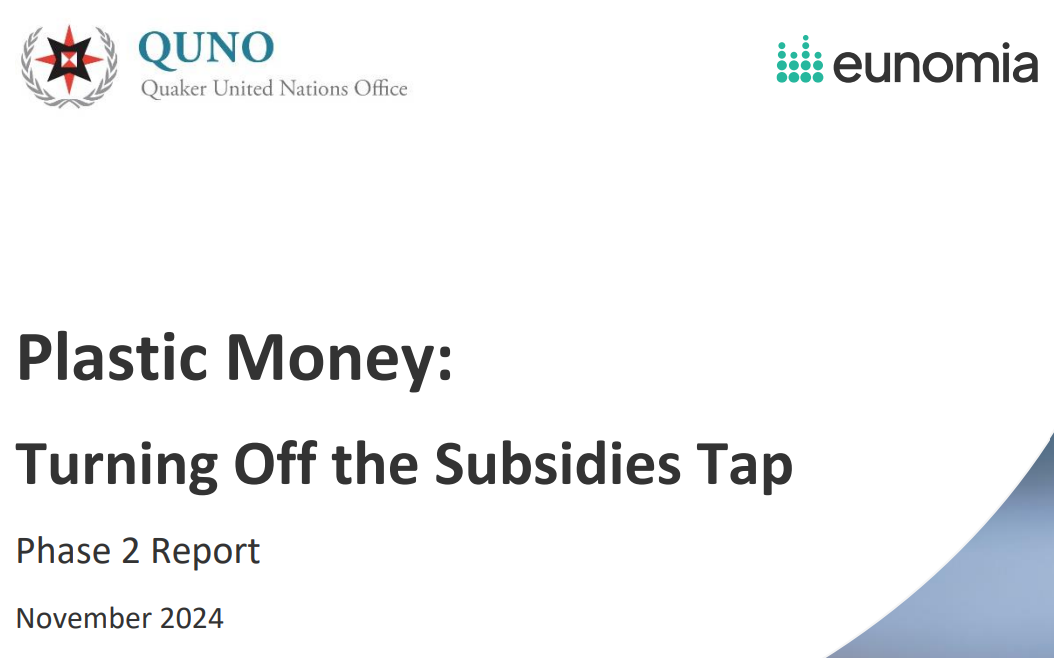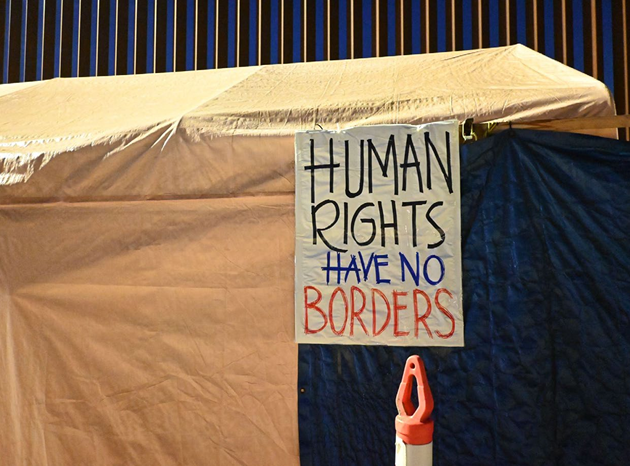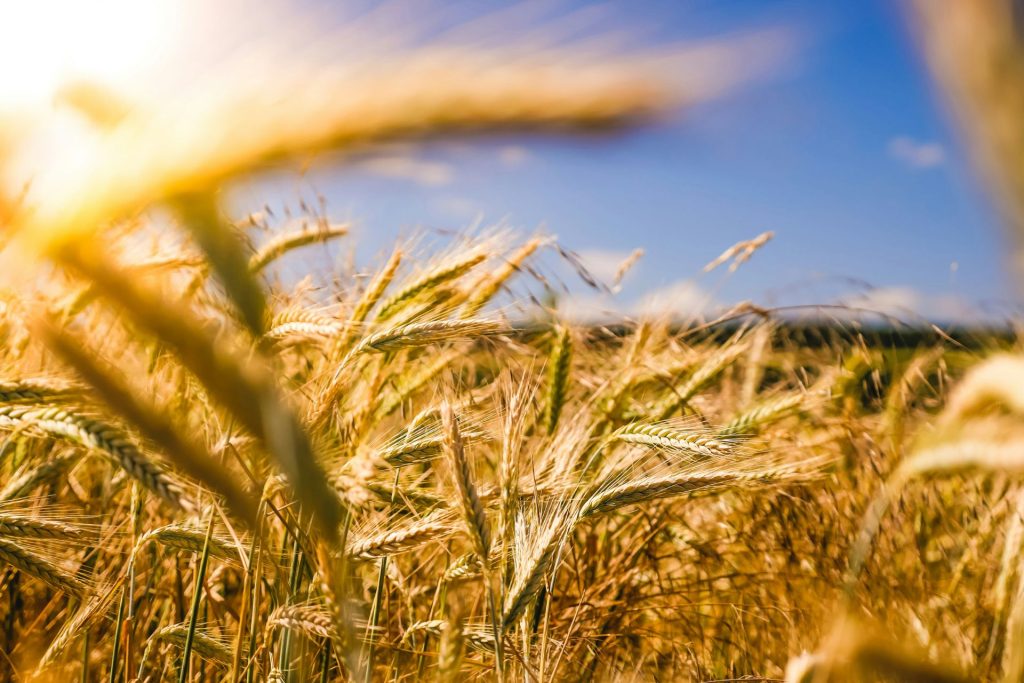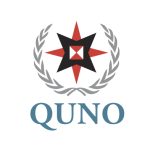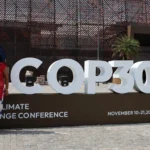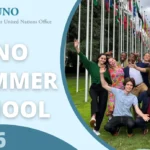The Quaker United Nations Office (QUNO) and Eunomia have published a new report detailing a second phase of research and modelling to understand the extent of subsidies for primary polymer production and the potential impact of removing these. We undertook the study with support from Dalberg Catalyst through grant funding from the Rockefeller Foundation.
Synthetic plastic polymers are incredibly versatile — light, malleable, inexpensive to produce — and they form the building blocks of many products used every day across the domestic, industrial and agricultural spheres. However, some 99% of plastics also derive from fossil fuels, hence each stage of the plastics lifecycle exacerbates the triple planetary crisis of climate change, pollution and biodiversity loss.
The Intergovernmental Negotiating Committee on Plastic Pollution (INC) is now in its fifth and final round of talks to agree a Global Plastics Treaty that would constrain the burgeoning growth of plastic production and pollution.
One possible measure is to end subsidies for primary polymer production (PPP). Subsidies bring down the cost of producing plastics and encourage new investment in manufacturing. This in turn lowers the cost of commodities for consumers and means that plastic products like packaging can easily compete with other, more sustainable materials. Eliminating subsidies could thus dampen the appetite for making plastics in the first place — something most experts agree is needed alongside demand-side measures and better waste management.
To date, the nature and extent of subsidies for PPP have remained opaque. The lack of detailed data is a significant barrier to eliminating subsidies and it stands in contrast to subsidies for fossil fuel production and consumption, for which good data are available.
This study collates information about PPP subsidies to fill the data gap, building upon the research we conducted for a Phase 1 report. Both reports focus on the industry segment dedicated to processing the raw materials for plastic (steam cracking of naphtha, isolating alkanes from raw natural gas and converting coal to gas), manufacturing basic resins and compounding and extruding them as plastic pellets. This segment is geographically concentrated and dominated by a few very large enterprises, some of them state-owned.
This Phase 2 report represents a work in progress to build a more detailed picture of PPP subsidies in primary polymer producing economies. The report investigates three main subsidy types:
- Capital-related support, including grants tied to investments in plants and concessional loans and loan guarantees from public finance institutions.
- Feedstock subsidy support, typically provided through government intervention in setting prices for feedstock (the raw materials used to manufacture plastic polymers); policies like tax credits or rebates that reduce the actual price paid for feedstocks; and policies that reduce or exempt feedstock chemicals from certain taxes.
- Process energy support for producing monomers and primary polymers, typically provided through government intervention and policies like those that subsidise feedstocks, but applied to fuels or electricity.
The study models two scenarios for 71 economies and seven primary polymers:
- A baseline scenario in which feedstock and process energy subsidies for monomer production and polymerisation continue at the average rate for 2015-2020.
- A scenario in which all these subsidies are removed, and the impact of this, compared to the baseline scenario, on both primary polymer production and consumers of plastic products for the years 2024 and 2050.
Our report concludes that the magnitude of PPP subsidies may be similar to subsidies for non-energy mining and marine capture fisheries and that, if demand for plastic products made with primary (as opposed to secondary recycled) polymers continues to increase, subsidy levels will rise in tandem. On the other hand, eliminating PPP subsidies would reduce primary polymer production, with the scale of reduction directly proportional to the level of subsidy in a particular economy. The impact on consumers in terms of prices for plastic products would be negligible.
You can access the full Phase 2 report, as well as its Summary version attached below.

